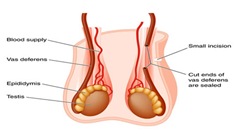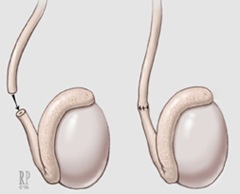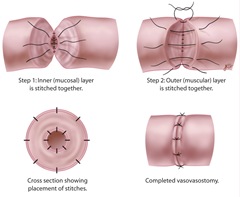My name is Dr. Yaniv Larish; I am a urologist specializing in male sexual health and infertility at NYU Langone Medical Center. You can hear me on the Men’s Health Show on Dr. Radio Sirius XM Channel 81 on Wednesdays from 6-8 PM Eastern time; I usually host the show twice a month.
Happy to finally join the 21st Century and start sharing my thoughts on Men’s Health, Male Sexual Health and vasectomy reversal micro-surgery with this Blog!
Of all the things I love about my job, being a subspecialist in Manhattan means that I am often taking care of patients who can educate me about any number of topics. That being said, it’s not THAT often that a patient can educate me about medicine, in this case genetics. But just the other day, one of my favorite patients came through the office and told me about a web-based genetic sequencing service he’d signed up for: 23andme.com
When he explained to me the service this website is providing, I was flabbergasted.
For 99 dollars, 23andme will sequence your entire genome and provide you with an interpretation of the genetic abnormalities you may have. All they need is for you to spit in a cup and mail it to them.
A brave new world indeed.
This particular patient was asking me about his genetic risk of prostate cancer in light of a mutation that was identified in the course of this testing; interestingly the gene in question conferred a higher risk of prostate cancer if the patient in question was Caucasian. This is in spite of the fact that African-Americans are genetically at a higher risk of prostate cancer at baseline. My patient is mixed –race, with a Caucasian father and an African American mother. As well, his Caucasian father had prostate cancer at a young age. Not a clear picture by any stretch of the imagination, but it is made even more complex by the fact that I have this patient on testosterone replacement, which was though for many years to increase a man’s risk of developing prostate cancer. In recent years this theory has been fairly thoroughly debunked (You can find my recent interview of Dr. Abraham Morgentaler regarding this topic on siriusxm.com/doctorradio), but patients – including this one – certainly have a lot of anxiety about this possibility.
I confided in my patient my concern that discussions like this one will soon dominate the time spent in a doctor’s office: “I have a genetic test that tells me such and such. Doctor, what does this mean?” There will be a lot of head scratching and shoulder shrugging at first I suspect. But once our knowledge catches up with the available information – what an absolutely fascinating time it will be to practice medicine!



